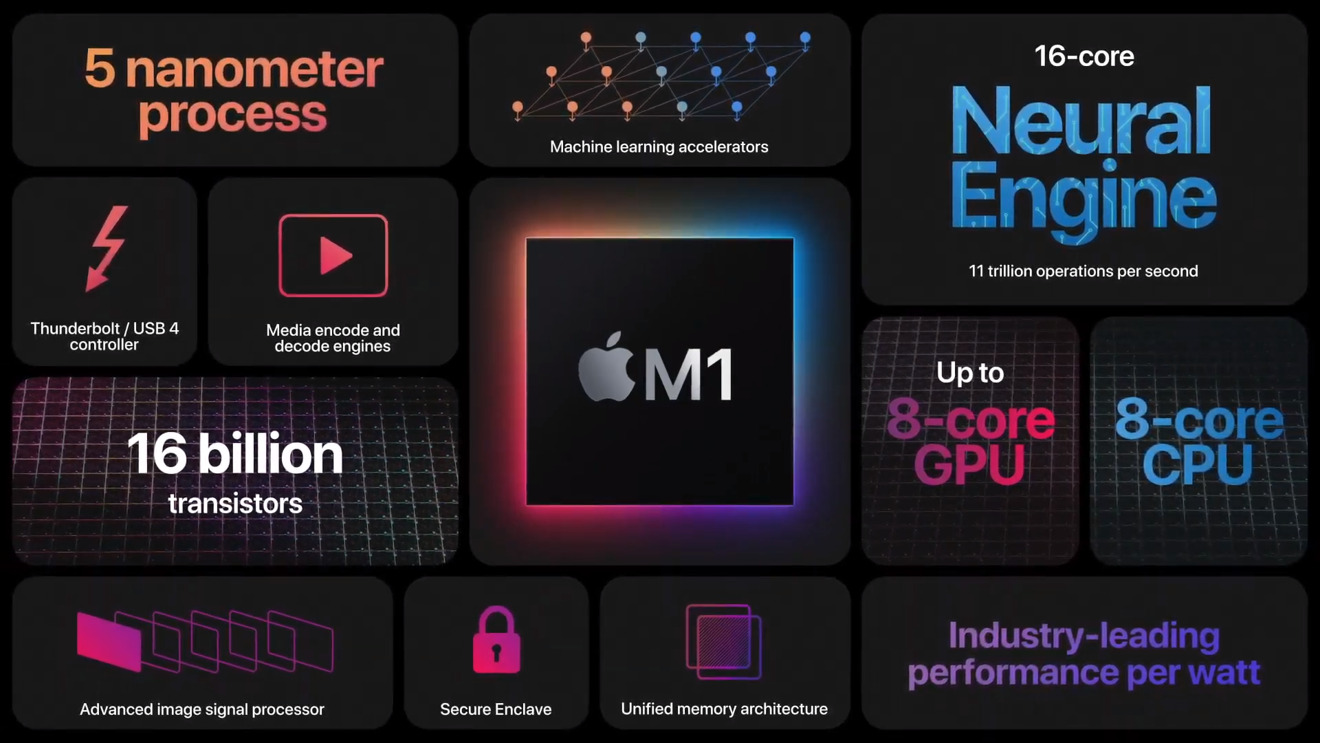Microsoft releases M1-native Visual Studio Code for developing apps
Microsoft's app development software Visual Studio Code has been updated to run natively on Apple Silicon M1.

Microsoft's long-standing app development software, Visual Studio Code, has now been released a native M1 version that no longer requires Apple's Rosetta 2 to run.
"We are happy to announce our first release of stable Apple Silicon builds [with] this iteration," says Microsoft in a blog post about Visual Studio Code 1.54.1. "Users on Macs with M1 chips can now use VS Code without emulation with Rosetta, and will notice better performance and longer battery life when running VS Code."
Microsoft thanks "the community for self-hosting with the Insiders [test] build" and for how they were "reporting issues early in the iteration."
By default, downloading the macOS edition of Visual Studio Code gets a Universal version which contains both Intel and Apple Silicon code. However, Microsoft has also made available "architecture-specific builds for Intel or Apple Silicon, which are smaller downloads compared to the Universal package."
It's now three months since the first Apple Silicon Macs shipped, and eight since the Developer Transition Kit was released. Developers are steadily converting their apps to take advantage of the M1 processor, but there is still some considerable way to go.

Microsoft's long-standing app development software, Visual Studio Code, has now been released a native M1 version that no longer requires Apple's Rosetta 2 to run.
"We are happy to announce our first release of stable Apple Silicon builds [with] this iteration," says Microsoft in a blog post about Visual Studio Code 1.54.1. "Users on Macs with M1 chips can now use VS Code without emulation with Rosetta, and will notice better performance and longer battery life when running VS Code."
Microsoft thanks "the community for self-hosting with the Insiders [test] build" and for how they were "reporting issues early in the iteration."
By default, downloading the macOS edition of Visual Studio Code gets a Universal version which contains both Intel and Apple Silicon code. However, Microsoft has also made available "architecture-specific builds for Intel or Apple Silicon, which are smaller downloads compared to the Universal package."
It's now three months since the first Apple Silicon Macs shipped, and eight since the Developer Transition Kit was released. Developers are steadily converting their apps to take advantage of the M1 processor, but there is still some considerable way to go.

Comments
Basically, Javascript is replacing Java for a ton of client (Angular and Express) and server (node.js) for a bunch of applications ... the MEAN stack is now supplanting the LAMP stack - the rage 10 to 15 years ago - for ecommerce sites. (C/C++ was never widely used for web servers and applications, though it is very possible to do so, and Microsoft has made some attempts to push it with their IIS web servers.) And then you have Python and R used for data science. Microsoft was losing a huge chunk of the next generation of programmers, so they created and open-sourced VS Code to get them back. Fortunately for them VS Code is excellent software so that plus the Microsoft name worked like a charm: it is the de facto standard. Including for people who are now using it for Java and C++ instead of Visual Studio.
So if you want to run VSCode or anything else on your tablet, get a Chromebook. Or if you want to pay twice as much for no particular reason, get a Microsoft Surface. VSCode runs on the x86 and ARM versions of both.
Interestingly enough you CAN execute arbitrary code on Android, which would allow you to program on it - especially in C/C++ - but there hasn't been a real effort to take advantage of it, even on the expensive devices offered by Samsung. (And now that you can get a full Debian-like Linux container in ChromeOS, there won't be.)
You're right, this would not be a straight "port" situation, but something more along the lines of what is being done for Cordova/PhoneGap. But that still doesn't remove the XCode-on-a-Mac dependency for development. From a pure editing situation I'm more than happy with Textastic on macOS, iOS, iPadOS. But I really would like to be able to have a cross platform development capability that reaches down to iOS, something beyond Shortcuts. Shortcuts is actually more sophisticated than what appears at first glance, and it is technically a programming capability that runs on iOS, but it's still too heavy & clumsy & limited compared to a traditional programming or scripting language and IDE. I guess we'll just have to wait until Apple moves a version of XCode to iOS/iPadOS.